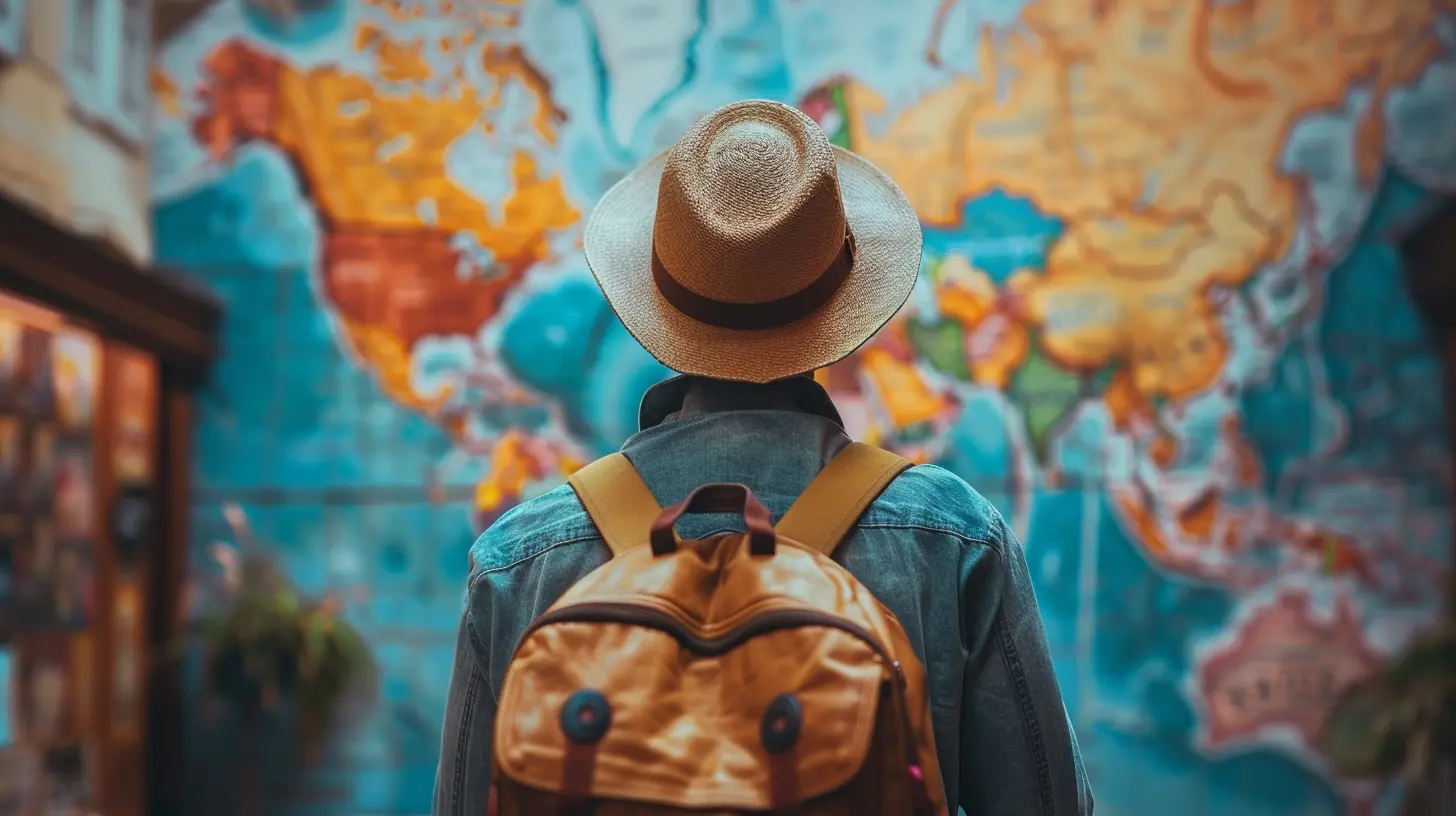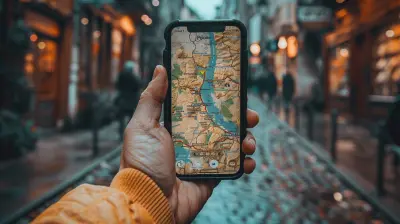Tips for Communicating in a Foreign Language While Traveling
17 June 2025
Traveling to a foreign country is an exciting adventure, but what happens when you don’t speak the local language? Struggling to communicate can be frustrating, but don’t let the language barrier hold you back! With the right approach, you can confidently navigate any country, connect with locals, and make the most of your travels.
Here are some practical tips to help you communicate effectively, even when you're not fluent in the language.

1. Learn Basic Phrases Before You Go
You don’t need to be fluent, but knowing key phrases can go a long way. Before your trip, take some time to learn simple words and expressions that will help you in everyday situations.Some essential phrases to learn include:
- Greetings: Hello, Goodbye, Please, Thank You
- Directions: Where is…?, Left, Right, Straight
- Numbers: 1-10, Prices, Time
- Emergency phrases: Help!, I need a doctor, Call the police
You can use language apps like Duolingo, Babbel, or Memrise to pick up useful words and practice pronunciation. A little effort in learning the basics will make locals more willing to assist you.

2. Use a Translation App
In today’s digital age, language barriers are easier to overcome with the help of technology. Translation apps like Google Translate and iTranslate allow you to quickly translate words, sentences, or even have voice conversations with locals.Some apps also have an offline mode, so you can access translations even without Wi-Fi or data. Just download the language pack before your trip, and you’re all set!

3. Speak Slowly and Clearly
When speaking in a foreign language (or even English in a non-English-speaking country), slow down your speech. Speaking too fast can make it harder for others to understand you.Break your sentences into simple words. Instead of saying, "Can you tell me how to get to the train station?", try "Train station? Where?".
Simple, clear communication minimizes confusion and increases your chances of being understood.

4. Use Hand Gestures and Body Language
Did you know that over 50% of communication is nonverbal? Your body language, facial expressions, and hand gestures can often say more than words.- Pointing at a menu to order food
- Using your hands to show numbers
- Nodding or shaking your head to indicate yes or no
Just be mindful that gestures can have different meanings in different cultures. What’s friendly in one country might be offensive in another, so do a quick check before you rely on them!
5. Write Things Down
If pronunciation is a challenge, writing things down can be extremely helpful. Keep a small notebook with important phrases or addresses written in the local language. This is especially useful for showing taxi drivers, hotel staff, or anyone helping you find your way.You can also use digital note-taking apps on your phone to store translated sentences for quick access.
6. Practice Before You Go
Confidence is key! Practicing basic conversations before your trip can help you feel more comfortable communicating with locals.Try these simple ways to practice:
- Talk to native speakers online: Apps like Tandem or HelloTalk let you chat with language learners or native speakers.
- Watch movies or listen to music: Exposure to common phrases and pronunciation helps you pick up useful words.
- Practice with a friend: If you’re traveling with someone, practice common conversations together.
The more you practice, the easier it will be to communicate naturally when you arrive.
7. Be Patient and Stay Positive
Communication barriers can sometimes be frustrating, but patience is key. If someone doesn’t understand you the first time, don’t panic!- Try rephrasing your sentence
- Use simpler words
- Repeat your request slowly
Most people appreciate the effort, even if your grammar isn’t perfect. A smile and a friendly attitude can break down communication barriers better than words sometimes!
8. Learn Common Cultural Norms
Every country has different communication customs. In some places, direct eye contact is a sign of confidence, while in others, it may be considered rude. Learning these cultural nuances can help you communicate more effectively.For example:
- In Japan, bowing is a common greeting.
- In France, people greet with a kiss on both cheeks.
- In Thailand, a "wai" (placing hands together) is a polite gesture of respect.
Understanding these small but important gestures can improve your interactions with locals.
9. Carry a Phrasebook or Flashcards
If you prefer old-school methods, a phrasebook can be a lifesaver. Unlike a phone, it doesn’t need battery life, and you can quickly flip to the phrases you need.Flashcards with pictures can also be handy, especially when ordering food or asking about transportation. Simply show a picture if you’re struggling to find the right word.
10. Keep an Open Mind and Have Fun
Learning and using a foreign language should be fun and rewarding. Don’t worry about making mistakes—most locals will appreciate the effort you put in.Think of language learning as a game. Every new word or phrase you pick up is another step toward better communication. Plus, the more you try, the more confidence you'll build for future travels!
Final Thoughts
While language barriers can be intimidating, they should never stop you from enjoying your travels. With a mix of preparation, creativity, and positivity, you can communicate effectively and have an incredible experience wherever you go.So next time you travel, embrace the challenge and speak up—you never know where a simple conversation might lead!
all images in this post were generated using AI tools
Category:
Travel HacksAuthor:

Taylor McDowell
Discussion
rate this article
2 comments
Pilar McIntosh
Don't stress about your language skills! A smile, a few key phrases, and a dash of adventure will bridge any gap. Happy travels! 🌍✈️
August 28, 2025 at 2:31 PM

Taylor McDowell
Thank you! A positive attitude truly makes all the difference in connecting with others while traveling. Happy adventures to you too! 🌟
Kate Klein
Remember, when in doubt, a confident thumbs up and a big smile can translate 'Can I have a burger?' in any language!" 🍔😄
June 23, 2025 at 2:20 PM

Taylor McDowell
Absolutely! Non-verbal cues like thumbs up and smiles can bridge language gaps perfectly. Great tip! 😊👍


